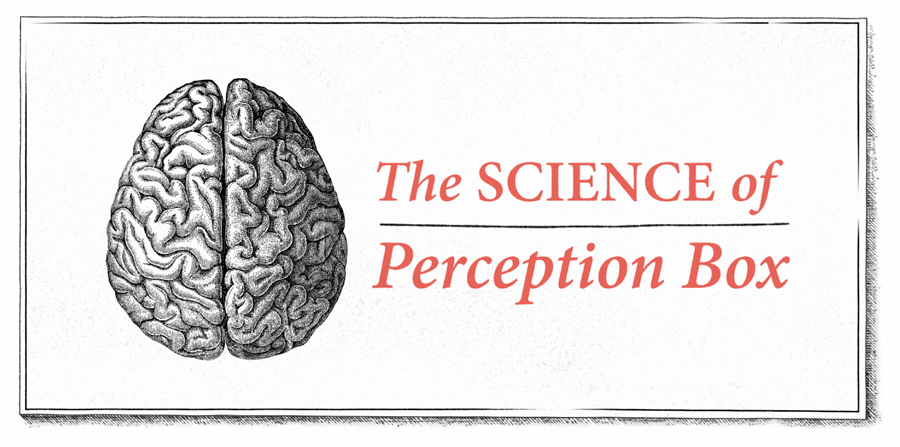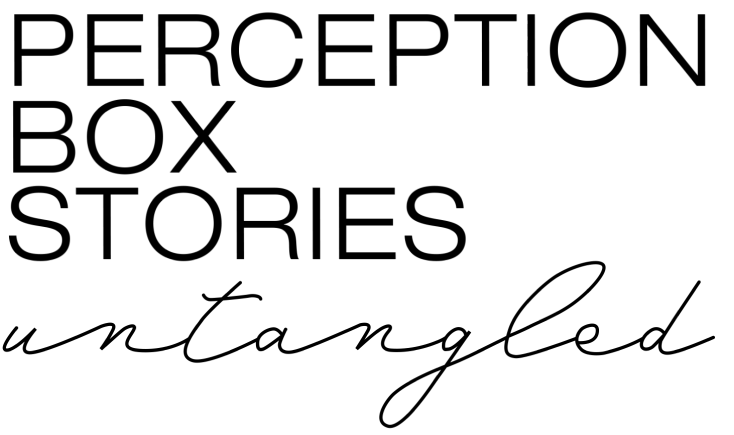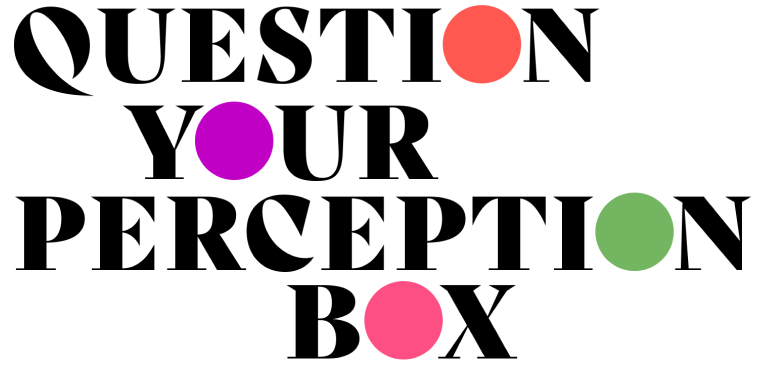Perception Box
As humans, we’re influenced by our unique experiences.
We each live inside a ‘Perception BoxTM’ that informs how we view the world.
There’s no escaping it, but you can learn how to expand it.
Sometimes all it takes is a single unlikely question.
We each live inside a ‘Perception BoxTM’ that informs how we view the world.
There’s no escaping it, but you can learn how to expand it.
Sometimes all it takes is a single unlikely question.
Latest Release
There’s bad failure — the kind we ignore or hide — and good failure, which becomes data for future progress. Three experts discuss how to tell the difference.
Tim Harford has been called “Britain’s Malcolm Gladwell.” He is the well-known “Undercover Economist” for the Financial Times. His new book is called “ADAPT: Why Success Always Starts with Failure.”
▸
6 min
—
with
“It’s through failure that we can enjoy deep learning, become more resilient and stronger. And if you look at the life of any successful person, they’ve always had major, as well as minor, failures.”
Positive Psychologist and Author, “Happier, No Matter What”

Notable scientists apply their own area of expertise to explore
the neuroscience behind Perception Box™.
the neuroscience behind Perception Box™.
Everything you experience is filtered through your brain, and everyone’s brain is different. Neuroscientist Christof Koch explains how understanding this can deepen your connection to the world around you.
Christof Koch is a Meritorious Investigator at the Allen Institute for Brain Science and Chief Scientist at the Tiny Blue Dot Foundation.
▸
7 min
—
with
Psychiatrist Dr. Bessel van der Kolk discusses key methods for rewiring the brain, kickstarting the healing process, and opening your mind to new perspectives.
Bessel van der Kolk MD spends his career studying how children and adults adapt to traumatic experiences and has translated emerging findings from neuroscience and attachment research to develop and[…]
▸
7 min
—
with

Celebrities untangle the knotted threads of their stories,
offering a rare glimpse into what made them who they are today.
offering a rare glimpse into what made them who they are today.
The New York Times bestselling author and founder of Going With Grace shares how close confrontations with death inspired her to change her life.
Alua Arthur is a respected death doula and the founder of Going With Grace, an organization dedicated to death doula training and end-of-life planning.
▸
7 min
—
with
She’s a fierce competitor on the ice. But the figure skater’s toughest battle has been accepting her shortcomings and learning to love herself.

Each guest answers a series of questions that have been carefully crafted
to help them get real with themselves.
to help them get real with themselves.
How the 40-year-old entrepreneur and media mogul learned from his struggles, and why he believes accountability is the real secret to happiness.
Dhar Mann is a filmmaker, entrepreneur, and the founder of Dhar Mann Studios, known for creating viral videos that share powerful life lessons. With over 136 million followers and 60[…]
▸
8 min
—
with
She was searching for perfection – until she discovered what she truly needed by letting go of what didn’t fit.
Atsuko Okatsuka is an Asian-American comedian, writer, and performer known for her energetic stage presence and bold humor.
▸
8 min
—
with

Notable scientists and experts explore the neuroscience and psychology behind Perception Box™ in this compilation series.
There’s bad failure — the kind we ignore or hide — and good failure, which becomes data for future progress. Three experts discuss how to tell the difference.
Tim Harford has been called “Britain’s Malcolm Gladwell.” He is the well-known “Undercover Economist” for the Financial Times. His new book is called “ADAPT: Why Success Always Starts with Failure.”
▸
6 min
—
with
Our brains weren’t built for the amount of info we deal with now. That’s why scientists have made the case for a “second brain” — a place to dump ideas so you can actually see how they connect later.
David Eagleman is a neuroscientist at Stanford University and an internationally bestselling author. He is co-founder of two venture-backed companies, Neosensory and BrainCheck, and he also directs the Center for[…]
▸
3 min
—
with

Question Your Perceptions
Click below to start your journey of self-discovery and personal growth
All Stories
There’s bad failure — the kind we ignore or hide — and good failure, which becomes data for future progress. Three experts discuss how to tell the difference.
▸
6 min
—
with
Our brains weren’t built for the amount of info we deal with now. That’s why scientists have made the case for a “second brain” — a place to dump ideas so you can actually see how they connect later.
▸
3 min
—
with
From science to philosophy, three perspectives explore why humans can’t stop asking “why.” Our search for purpose, they suggest, is less about finding answers and more about learning how to move forward.
▸
3 min
—
with
The brain is an “illusion factory.” Here’s what that means for our perception of time.
▸
3 min
—
with
“In most instances, ‘good enough’ is good enough.” A time management expert, a cognitive scientist, and a psychologist share their takes on productivity, perfectionism, and the harm of hustle culture.
▸
3 min
—
with
From neuroscience to philosophy, experts reveal why compassion may be the most important human skill we have.
▸
3 min
—
with
Philosophy asks if free will is real. Neuroscience reveals why the answer is more complicated than we expected.
▸
3 min
—
with
Daily habits can help you thrive or quietly turn into addictions. The difference is how your brain handles cues, routines, and rewards. Three experts explain how to work with your wiring instead of against it.
▸
7 min
—
with
Language is a huge part of human development, even the language we keep to ourselves. Three experts explain how words and beliefs can change our brains and our lives:
▸
3 min
—
with
Sleeping better helps you think better, which helps you live better. Three experts explain why quality sleep is imperative to brain function, problem solving, communication, and more.
▸
3 min
—
with

































